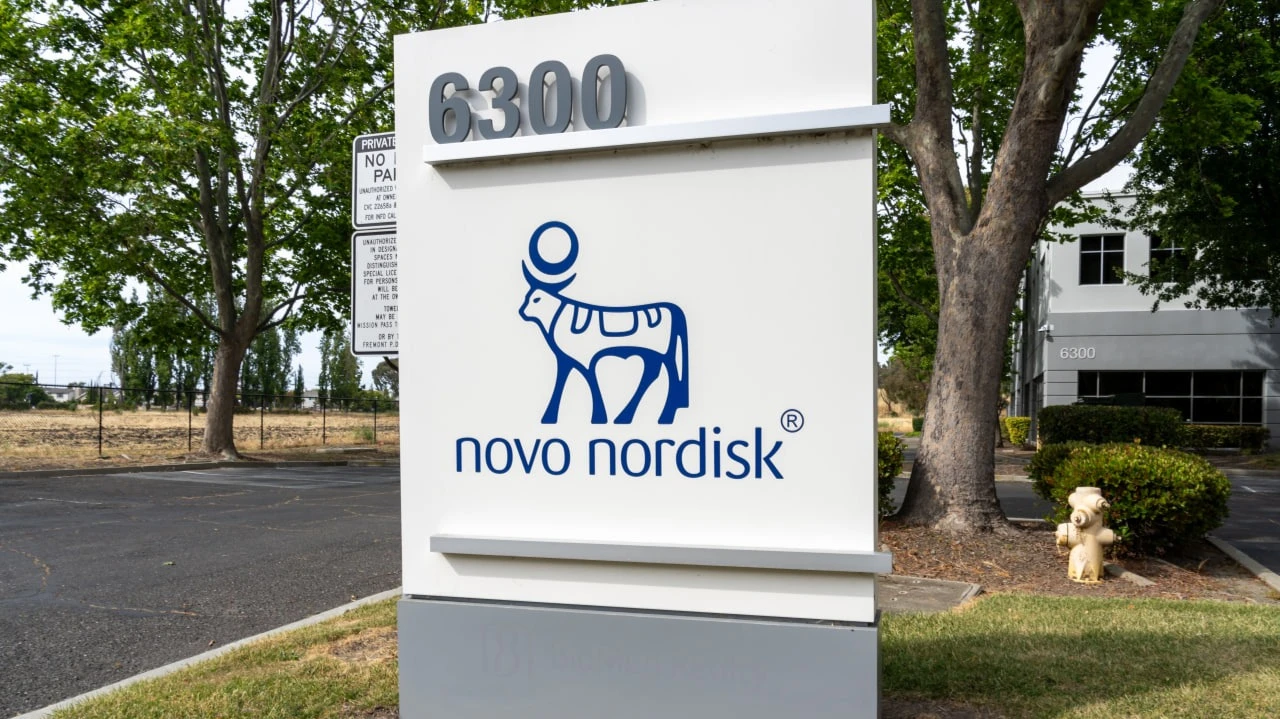Morgan Stanley gave one of the worst forecasts for Novo. What could bring down the stock?
The bank doubts that the active ingredient in Ozempic and Wegovy will prove effective in fighting Alzheimer's disease

Morgan Stanley doubted the success of trials of semaglutide - the active ingredient of Ozempic and Wegovy drugs from Danish Novo Nordisk - in the fight against Alzheimer's disease. This could be a new area of application for Novo's development, which has already brought the company billions of dollars, but the bank estimates the probability of failure at 70% and predicts a sharp fall in the company's securities in case of failure. The bank changed its recommendation on the company's securities to "sell" and lowered the target price: it is now one of the lowest on Wall Street. However, Morgan Stanley's pessimism on Wall Street is not shared by everyone.
Details
Morgan Stanley analysts believe that the research, in which Novo Nordisk is testing the effectiveness of its popular weight-loss drug semaglutide in the fight against Alzheimer's disease, is likely to fail. Because of this, the bank gave one of the most pessimistic forecasts on the company's securities among major players from Wall Street, writes MarketWatch.
Morgan Stanley changed its recommendation on Novo receipts traded in the U.S. from "hold" (equal rating) to "sell" (underweight) and cut its target price from $59 to $47. His estimate implies a 15.5% drop in the stock relative to its closing level on Sept. 26. According to FactSet, only analysts at Intron Health give a lower target of $46.7.
In the U.S. trading on September 29, Novo Nordisk securities fell by almost 3% at the moment, but then slowed down to about 0.3%. Since the beginning of the year, their value has fallen by almost 36%. Trading in Copenhagen ended, on the contrary, with an increase of almost 0.9%.
What problems Morgan Stanley sees for the company
The benefits of the obesity and diabetes drugs from Novo Nordisk and its US rival Eli Lilly have gone beyond their initial launch: since the introduction of Ozempic in 2017, they have also shown efficacy in cardiovascular and liver disease, writes Barron's. Novo is now studying the efficacy of oral semaglutide, the active ingredient in Ozempic and Wegovy, in early-stage Alzheimer's disease. Results of the study are expected later this year.
But a group of Morgan Stanley analysts led by Thibaut Bouterin believes that the chance of failure is very high: they estimate that with a 75% probability semaglutide will not have a statistically significant effect in reducing dementia risks, writes MarketWatch. Failure will cause Novo Nordisk's stock price to fall by "high single-digit" percentages (about 7-9%), Morgan Stanley predicted.
The bank's analysts noted Novo's other problems, such as competition with Eli Lilly. According to their data, the weekly number of prescriptions for Ozempic has been declining in recent months, while the number of prescriptions for Eli Lilly's competing drug Mounjaro continues to grow.
In addition, analysts predict that the government's Medicare Part D program - a drug reimbursement system for older Americans and people with disabilities - will cut the price of semaglutide by about half. They also believe that a trial of Novo Nordisk's new weight-loss drug CagriSema, which Novo Nordisk is developing as a new weight-loss treatment, against Eli Lilly's competitor Zepbound will not show significant advantages.
What other analysts are saying
Morgan Stanley's pessimism is not shared by everyone on Wall Street.
"The Novo trials represent a more attractive risk-to-potential reward ratio for investors than many realize," said BMO analyst Evan Siegerman. He said the sharp drop in stock prices over the past 18 months (the securities have fallen more than 60 percent from their mid-2024 peak) has made investors particularly susceptible to potential positive signals, including those with "inherently low expectations of success."
Siegerman maintains his recommendation to hold American depositary receipts Novo (Market Perform rating) with a target price of $50: he sees here an attractive short-term opportunity for tactical traders, reports Barron's. The analyst's estimate suggests a 10% drop in the stock.
Of the 32 analysts covering Novo shares traded in the U.S. market, 15 are positive and advise buying them (Buy and Overweight ratings), 12 of them advise holding them (Hold) and two advise selling them (Sell).
Context
The number of people with Alzheimer's disease continues to grow. In the US, more than 7 million people are living with this diagnosis, and according to the Alzheimer's Association, this figure may reach almost 13 million by 2050, writes Barron's.
Alzheimer's treatments approved to date include Leqembi (developed by Biogen and Eisai) and Lilly's Kisunla. These drugs have proven to slow the progression of the disease in early-stage patients, but side effects include possible hemorrhages and brain swelling, the publication notes.
This article was AI-translated and verified by a human editor
